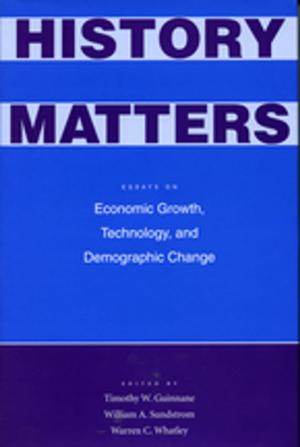Organizing Organic
Conflict and Compromise in an Emerging Market
Nonfiction, Social & Cultural Studies, Social Science, Sociology| Author: | Michael A. Haedicke | ISBN: | 9780804798730 |
| Publisher: | Stanford University Press | Publication: | May 18, 2016 |
| Imprint: | Stanford University Press | Language: | English |
| Author: | Michael A. Haedicke |
| ISBN: | 9780804798730 |
| Publisher: | Stanford University Press |
| Publication: | May 18, 2016 |
| Imprint: | Stanford University Press |
| Language: | English |
Stakeholders in the organic food movement agree that it has the potential to transform our food system, and yet there is little consensus about what this transformation should look like.
Tracing the history of the organic food sector, Michael A. Haedicke charts the development of two narratives that do more than simply polarize the organic debate, they give way to competing institutional logics. On the one hand, social activists contend that organics can break up the concentration of power that rests in the hands of a big, traditional agribusiness. Alternatively, professionals who are steeped in the culture of business emphasize the potential for market growth, for fostering better behemoths. Independent food store owners are then left to reconcile these ideas as they construct their professional identities and hone their business strategies.
Drawing on extensive interviews and unique archival sources, Haedicke looks at how these groups make sense of their everyday work. He pays particular attention to instances in which individuals overcome the conflicting narratives of industry transformation and market expansion by creating new cultural concepts and organizational forms. At once an account of the sector's development and an analysis of individual choices within it, Organizing Organic provides a nuanced account of the way the organic movement continues to negotiate ethical values and economic productivity.
Stakeholders in the organic food movement agree that it has the potential to transform our food system, and yet there is little consensus about what this transformation should look like.
Tracing the history of the organic food sector, Michael A. Haedicke charts the development of two narratives that do more than simply polarize the organic debate, they give way to competing institutional logics. On the one hand, social activists contend that organics can break up the concentration of power that rests in the hands of a big, traditional agribusiness. Alternatively, professionals who are steeped in the culture of business emphasize the potential for market growth, for fostering better behemoths. Independent food store owners are then left to reconcile these ideas as they construct their professional identities and hone their business strategies.
Drawing on extensive interviews and unique archival sources, Haedicke looks at how these groups make sense of their everyday work. He pays particular attention to instances in which individuals overcome the conflicting narratives of industry transformation and market expansion by creating new cultural concepts and organizational forms. At once an account of the sector's development and an analysis of individual choices within it, Organizing Organic provides a nuanced account of the way the organic movement continues to negotiate ethical values and economic productivity.















